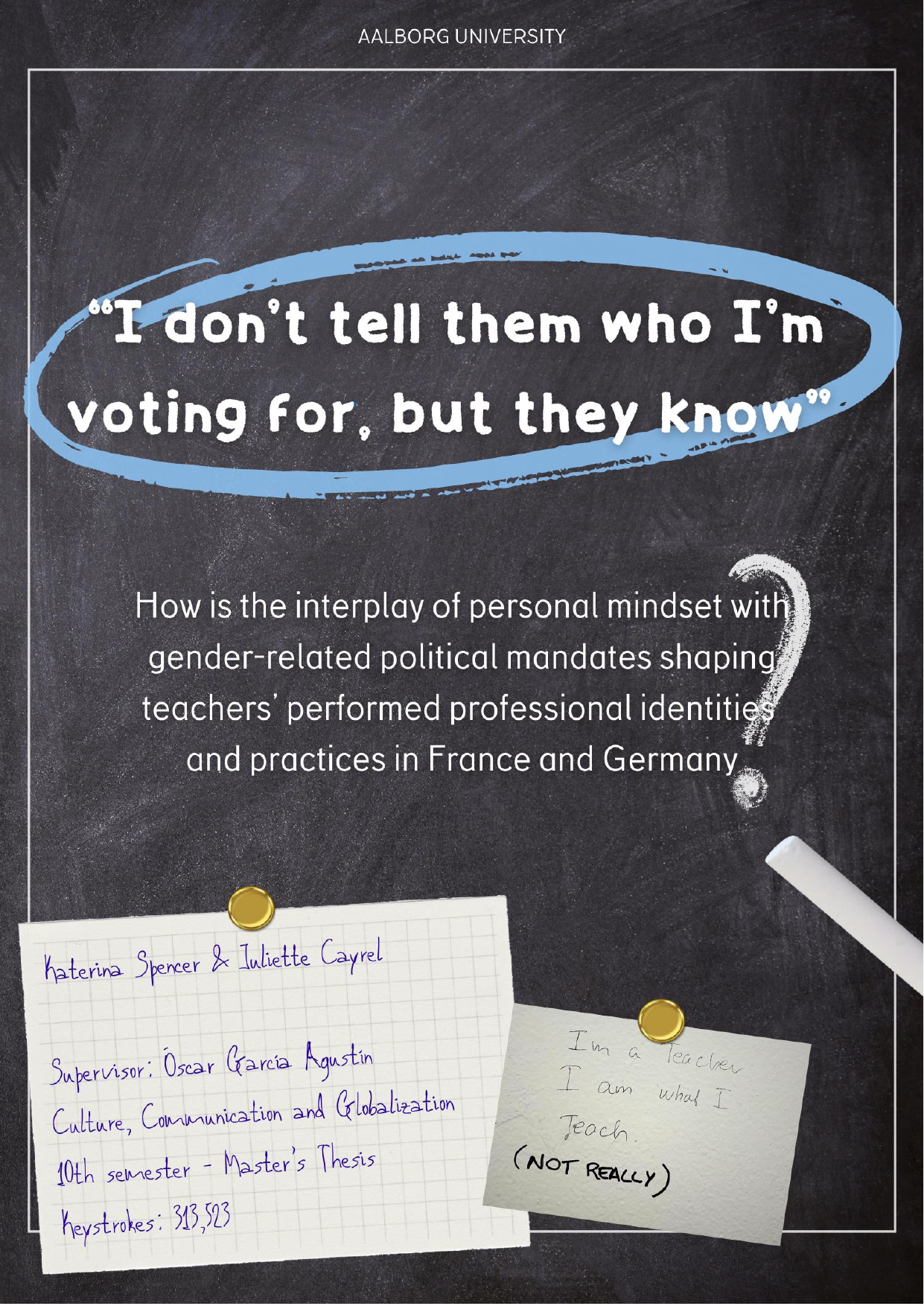
"I don't tell them who I'm voting for, but they know" - How is the interplay of personal mindset with gender-related political mandates shaping teachers' performed professional identities and practices in France and Germany?
Term
4. term
Publication year
2024
Submitted on
2024-05-30
Pages
191
Abstract
Finding its origin in the debate about the recent bans on gender inclusive writing in France and Germany, this paper explores the intersection of personal beliefs and political mandates in the practices of teachers regarding matters of gender. This research is situated at the intersection of the field of educational and gender studies and investigates the following problem: How is the interplay of personal mindset with political mandates shaping teachers’ performed professional identities and practices in France and Germany? At the methodological core, the social constructionist and interpretivist approach gives language central importance in the research and adds a particular focus on the discourse of teachers. To implement a comparative analysis between the cases of France and Germany, six secondary school teachers from each country were interviewed following a semi-structured style. These conversations were held in the research participants’ respective native languages of either French or German in order to facilitate the process of acquiring detailed data. The interviews were then transcribed, translated, and analyzed according to the coding methods of qualitative content analysis and reflexive thematic analysis. Here, the common thread in the theoretical framework is the Gramscian idea of cultural hegemony which is present through all conceptual notions involved in the making of this study. This includes the political influence on education with the ambition of neutrality, the ongoing construction of gender through society, the constant negotiation of both private and professional identity in an interplay with the social sphere, and its performed expression through language. Starting with more concrete practical matters before moving on to abstractions on a reflexive level, our analysis covers the categories of (1) Positioning the Teachers in their Professional Environment, (2) Being a Teacher means Teaching in Practice, (3) Exploring Inclusive Language Practices in the Classroom, (4) Exercising Agency as a Teacher and Civil Servant, (5) Understanding the Role of the Teacher, and (6) The Individuality behind the Profession. The results from the analysis reveal the existence of a collective teachers’ identity, constituted by the interplay of personal mindset with political mandates. Strong sense of duty and the best interest of the students are the main characteristics of this stature, which is continuously defined and redefined through performance inside and outside the classroom. Identities and pedagogical performances are thus formed in close partnership between students and teachers. While the findings highlight the inertia characterizing change in the educational field making political mandates not always achieve their desired influence on classroom practices, this carries ambivalent implications in practice. The heterogeneous identity of the teachers’ group protects democracy by not being subjected to specific party ideologies, and by performing and reproducing shared democratic values, as it offers a counter-power to shifting governments in France and Germany. In conclusion, this research examines the influence of teachers' agency on policy implementation, contributing to the assessment of possibilities to regulate the educational field from a political standpoint.
Keywords
Documents
